Mount Everest Expedition 2026
Overview
Everest Expedition 2026 with “Seven Summits Expeditions” is an opportunity, a lifetime experience that changes your life forever. It is an attempt to stand on the top of the world. It is also an overwhelming journey to the land of Himalayas, with Luxury.
Residing in the Mahalangur Range of the Himalayas, standing tall at the height of 8848.86m, boasting the title of the highest mountain in the world, Mt. Everest in the Eastern Part of Nepal is a top choice among travel destinations in the world. Besides Mt. Everest/Sagarmatha/Chomolungma itself, there are other beautiful mountain ranges in the periphery like Mt. Lhotse, Ama Dablam, Mt. Pumori, Mt. Nuptse, Lobuche peak to name but a few. One may opt for peak climbing, trekking, Expeditions, or a customized trip by combining any of these adventurous activities in the Everest Region. The Glacial Lakes and Icefalls are breathtaking as well as spine chilling that one cannot resist but behold.
The other fun activities that we can include in our luxurious Everest Expedition are exploring the Sagarmatha National Park, one of the World Heritage Sites, which is the home to a number of floras and faunas dominant to the Himalayan Region. It houses some endangered species like Red Pandas, Musk Deers, Snow Leopards, and many more. The Gokyo Lakes are beautified by the migrant waterbirds in the spring season.
Luxurious Everest Expedition 2026 will be monitored by Nima Tamang (founder of Seven Summits Expeditions).
Mr. Tamang has already leaded 50+ expeditions on (8000M+7000M) peaks all over the world with his utmost efficiency and dedication. He is leading mountains in front and came over this way.
He has leaded Mt. Everest as a senior guide more than 15 times. It has recently leaded an expedition to Mt K2 in the summer of 2021 & 22 which was a breathtaking success in the mountain history on Mt. K2.
Climatic Conditions and Risks in Everest Region
It is a well-known fact that the Everest Region lies 8848.86 m above sea level, where the air is thin with very low levels of oxygen that can result in serious altitude sicknesses. The temperatures are at extremes, recorded as low as -62 degrees Celsius making it impossible to live in the lower region, let alone climb the summit. The winds blow at the speed of 285km/hr can influence the movement of snow and ice that can result in huge avalanches. The Himalayas have the 3rd highest concentration of ice on the whole planet making it extremely cold that no vegetation survives in the winter season even in the lower parts. So, it is very necessary to be prepared for the extreme conditions while on this expedition to Mt. Everest. But, our superb team of Sherpas will make your Expedition to Everest a luxurious one.
Best Season for Everest Expedition
The best season to go on the expedition to Everest is between March to May when winds are calmer, the days are sunny, temperatures are mild and the trail is gorgeous with green dense forests, raging rivers and streams, the soothing sounds of the birds and animals and the uninterrupted views of the grand massifs throughout the trail. The lakes are shining with crystal clear water while the glacial lakes shine in turquoise. The overall journey gets even more beautiful during these months.
Preparation and Training for Everest Expedition
Preparing for an Everest expedition 2025 is a rigorous process that requires physical fitness, mental strength, and specialized training. Here are some key aspects of preparation and training for an Everest expedition:
Physical Fitness:
- Building cardiovascular endurance: Engage in aerobic activities such as running, hiking, cycling, or swimming to improve stamina and lung capacity.
- Strength training: Focus on building core strength, upper body strength, and leg muscles to handle the demands of carrying heavy loads and using climbing equipment.
- Endurance training: Practice long-duration hikes and climbs in varied terrains to simulate the challenges you’ll face on Everest.
Altitude Acclimatization:
- Gradual ascent: Prioritize a slow and steady ascent to higher altitudes to allow your body to adjust to the decreasing oxygen levels.
- Acclimatization climbs: Schedule climbs on other high-altitude peaks to acclimate your body to higher elevations before attempting Everest.
Technical Skills:
- Learn mountaineering techniques: Acquire skills such as ice and rock climbing, rope work, and crevasse rescue techniques.
- Glacier travel: Practice moving on glaciers and crossing crevasses safely.
Mental Preparation:
- Develop mental resilience: Climbing Everest can be mentally demanding. Train yourself to stay focused, positive, and resilient in challenging situations.
- Learn stress management: Practice relaxation techniques to deal with stress and anxiety during the expedition.
Experience:
- Gain experience on other high-altitude climbs: Attempt other 8,000-meter peaks or challenging climbs to gain valuable experience at high altitudes.
- Participate in lower-altitude expeditions: Join climbing expeditions to peaks between 5,000 and 7,000 meters to gain experience and confidence.
Gear and Equipment:
- Invest in high-quality gear: Ensure you have proper clothing, boots, climbing equipment, and camping gear suitable for extreme weather conditions.
- Familiarize yourself with your gear: Practice using all your equipment before the expedition to avoid surprises on the mountain.
Medical Examination:
- Undergo a thorough medical check-up: Get clearance from a doctor experienced in high-altitude medicine to ensure you are fit to attempt such a climb.
Expedition Planning:
- Choose a reputable expedition company: Select a company with experienced guides, a good safety record, and a proven track record of successful climbs.
- Plan logistics: Work with your expedition team to plan logistics, including transportation, permits, and emergency procedures.
Remember that climbing Everest is a significant undertaking and requires dedication, preparation, and proper training. It’s crucial to be realistic about your abilities and limitations and to prioritize safety at all times.
(NOTE: With all necessary precautions and guidelines, climbers need not worry much but prepare themselves both physically and emotionally.
Itinerary
-
5 April: Arrival in Kathmandu & transfer to the hotel
Arrival in Kathmandu & transfer to the hotel
-
6 April: Official formalities and Shopping in Kathmandu
Official formalities and Shopping in Kathmandu
-
7 April: Drive to Airport, fly to Lukla & commence trek to Phakding
Drive to Airport, fly to Lukla & commence trek to Phakding
-
8 April: Trek to Namche Bazaar
Trek to Namche Bazaar
-
9 April: Acclimatization day at Namche
Acclimatization day at Namche
-
10 April: Trek to Tengboche
Trek to Tengboche
-
11 April: Trek to Dingboche
Trek to Dingboche
-
12 April: Rest day in Dingboche
Rest day in Dingboche
-
13 April: Trek to Chhukung
Trek to Chhukung
-
14 April: Rest and acclimatization
Rest and acclimatization
-
15 April: Trek to Island Peak Base Camp
Trek to Island Peak Base Camp
-
16 April: Summit Island Peak and return back to Chhukung
Summit Island Peak and return back to Chhukung
-
17 April: Rest day
Rest day
-
18 April: Trek to Lobuche
Trek to Lobuche
-
19 April: Trek to Everest Base Camp
Trek to Everest Base Camp
-
20-25 April: We carry out following activities:
We carry out following activities:
- Acclimatization
- Prayer Ceremony
- Training: ladder practice, fixed lines, diagonal ascent/descent, traverse, duck walk, classical/flat footing, using oxygen etc.
-
26 April: Climb to Camp I o/n
Climb to Camp I o/n
-
27 April: Climb to Camp II o/n
Climb to Camp II o/n
-
28 April: Rest and acclimatization
Rest and acclimatization
-
29 April: Hike up to West Shoulder
Hike up to West Shoulder
-
30 April: Touch Camp III, return back to Camp II o/n
Touch Camp III, return back to Camp II o/n
-
1May: Descend to Base Camp
Descend to Base Camp
-
2-8 May: Descend to Namche for rest, evaluate weather conditions for summit rotation.
Descend to Namche for rest, evaluate weather conditions for summit rotation. Direct fly back to Kathmandu for good rest (for those who can afford budget)
-
9-12 May: Back to Base Camp and final preparation for summit push
Back to Base Camp and final preparation for summit push
-
13 May: Climb to Camp II o/n
Climb to Camp II o/n
-
14 May: Rest at Camp II
Rest at Camp II
-
15 May: Climb to Camp III o/n (from here on we will use oxygen)
Climb to Camp III o/n (from here on we will use oxygen)
-
16 May: Climb to Camp IV o/n
Climb to Camp IV o/n
-
17 May: Rest at Camp IV (in case of bad weather)
Rest at Camp IV (in case of bad weather)
-
18 May: Summit Mt. Everest and return back to Camp IV (if possible lower camps)
Summit Mt. Everest and return back to Camp IV (if possible lower camps)
-
19 May: Descend to Camp II
Descend to Camp II
-
20 May: Descend to Base Camp
Descend to Base Camp
-
21 May: Cleaning up Base Camp
Cleaning up Base Camp
-
22 May: Trek back to Pheriche or Direct flight to KTM by Heli
Trek back to Pheriche or Direct flight to KTM by Heli
-
23 May: Trek to Namche
Trek to Namche
-
24 May: Trek to Lukla
Trek to Lukla
-
25 May: Fly to Ktm
Fly to Ktm
-
26 May: Final Departure
Final Departure
-
27-31 May:Extra days in case of bad weather, etc. (contingency
Extra days in case of bad weather, etc. (contingency
Note: If the above itinerary does not meet your needs, it can be customized as per your requirement.
Include / Exclude
Cost Includes:
-
- Pick up and drop off services for both international & domestic flights as per the itinerary
- 5 nights Hotel in Kathmandu on bed & breakfast plan, 3 nights before and 2 night after the expedition
- A welcome dinner in a typical Nepali restaurant in Kathmandu
- One-way domestic flight KTM – Lukla with Airport tax
- One-way Heli service from EBC – Lukla – KTM on sharing basis with Airport tax after the expedition
- Land and Air domestic transportation and cargo for our overall expedition crew
- Climbing Permit and all other necessary fees to climb Mt. Everest, Island Peak & Lobuche Peak
- Khumbu Ice-fall fee
- Summit route fixing charge
- Garbage Management and Garbage Disposal Fee
- Government Liaison officer with his daily wages, equipment, food, insurance and both way airfare
- Freshly cooked meals (Breakfast, Lunch & Dinner): Continental, Nepali, Indian and Chinese with hot drinks, Tea and Coffee
- 1 Professional Everest Summiteer Climbing Sherpa with his equipment allowance, daily wages and carrying bonus
- Experienced Base Camp Sirdar, Manager, Cook, Camp-2 Cook and Kitchen helpers
- Necessary Porters up to the Base Camp and return from the Base Camp
- Maximum 60kg per member as a personal baggage
- High Altitude, Medical & Helicopter rescue insurance for Climbing Sherpa, Cook, and involved Nepalese staffs
- Each Member will be provided with individual Tent (Kailas X4), Mattress and Pillow at Base Camp
- Common Equipment at Everest Base Camp: Dining Tent, Kitchen Tent, Communication Tent, Shower Tent, Toilet Tent, Tables and Chairs, Heater, etc.
- High Camp Services for C1-C4: High Tent, Shovel, Rope, EPI Gas, Gas Burner (MSR Rector), High Food etc.
- Common Equipment at C2: Dining Tent, Kitchen Tent, Toilet Tent, Member Tent (2 members per tent)
- Walkie –Talkie for communicating from Base Camp to Mountain and Mountain to Base Camp.
- Internet access Wi-Fi is available to all climbers on our team at Base Camp ($50/gigabyte).
- Satellite phone is available for emergency use at $3 per minute
- HRA medical Camp provides emergency medical services with certain charge
- Weather forecast during the entire expedition
- Oxygen (4ltr.) 6 bottles allocated for each Member and 4 bottles for each climbing Sherpa
- Summit Mask & Regulator set for each Member and each climbing Sherpa
- Sufficient Back-up Oxygen bottles and Mask Regulator set available at our Base Camp (Chargeable as per use)
- In case of emergency, rescue and replacement, we have extra climbing Sherpa on standby
- Company’s Duffel Bag (if required)
- First Aid Medical Kit
- Farewell dinner in a typical Nepali restaurant in Kathmandu
- Government Taxes and Company Service Charge
- Everest and Island Peak summit certificates after the successful summit of the peaks
Cost Excludes:
- International flight tickets
- Nepal Entry Visa fee (To be applied for 90 days)
- Bank/wire transfer fees (if applicable)
- Lunch & Dinner during your stay in Kathmandu
- Personal Travel Insurance and High-Altitude Insurance (Accident, Medical and Emergency Rescue Evacuation)
- Personal Trekking and Climbing Gears
- Personal Expenses: Phone calls, internet, battery recharge, laundry, alcoholic beverages, bottles and canned beverages, specialty coffee or espresso drinks etc.
- Drone & Special filming permit
- Summit Bonus for Climbing Sherpa US $1500.00
- Tips for Cook and Kitchen helpers
- Any other service cost which are not included in the Cost Includes
Price per person
Usefull Information
Expedition Terms and conditions:
- Company Responsibility:
- The company is fully responsible to follow up the above-mentioned service include list as
well as service exclude list i.e. provided to our clients.
- The company is responsible to make an introduction between Member and Sherpa, guide
and others Nepali staff.
- Company is fully responsible to make a proper management of whole expedition and also
to provide a qualitative service to Member and staff according to Service list.
- If any emergency problem happens to our clients and staff, we will be fully on standby to
bring up the good solution to its problem as per the requirements.
- Clients Responsibility:
- We suggest our clients to focus on safety, security and training – company will not
be responsible if anything unpredictable accident happens due to self-carelessness of the clients.
- Each and every client must do their emergency helicopter rescue and Medical insurance having
coverage of minimum US $25000. Besides they must also do medical and travel insurance
for own safety. We also would like to suggest all of our clients to make trip cancellation insurance
in case of natural disaster in the mountains which is unpredictable and knows no timing. Even
we can’t guarantee our health problem so, it is best to stay safe side ourselves.
- Service includes will strictly be followed in case if clients need extra services – Extra cost
will be added.
- Mode of Payment:
- We accept Bank Transfer / Visa Card / Cash
If the clients make the payment through Bank transfer, then bank transfer charge has to be borne
by the clients.
- We accept Cash.
- We accept Cards (4% extra charge will be charged).
- Payment method:
- 40 % as booking – Advance payment has to be done as confirmation.
- The rest 60% Payment has to be made upon arrival in Kathmandu before the starting date
of Expedition.
- Cancellation Policy:
- If the Expedition is made cancel before 40 days than 15% of Full payment will be deducted
whereas 85% of the payment will be refunded.
- If the Expedition is made cancel before 20 days than 50% of full payment will be refunded
where as 50% will be deducted.
- If the Expedition is made cancel before 5 days of the Expedition begin than 20% of full
payment will be refunded whereas 80% will be deducted.
- No refund is made after the departure of the Expedition – and if any natural calamities or
disaster will occur or member personal health problem take place after expedition start
the same condition will be applied.
Equipment List
FAQs
-
 Best Seasons Spring and Autumn
Best Seasons Spring and Autumn -
 Group Size 1-15
Group Size 1-15 -
 Duration 60 DAYS BOOKING OPEN FOR 2026
Duration 60 DAYS BOOKING OPEN FOR 2026 -
 Maximum Altitude 8848.86M
Maximum Altitude 8848.86M -
 Trek Difficulty Very Hard
Trek Difficulty Very Hard

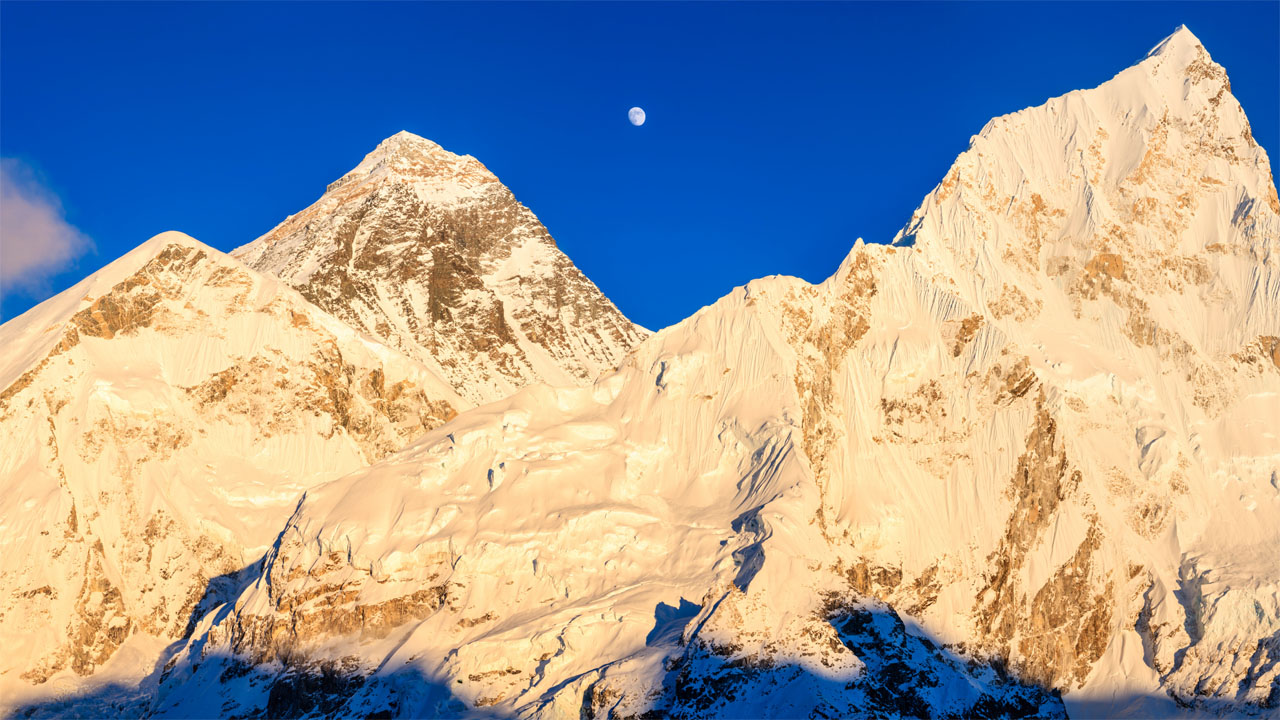


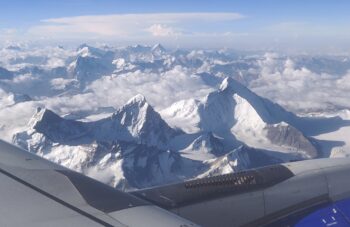
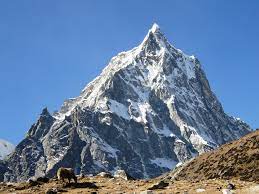
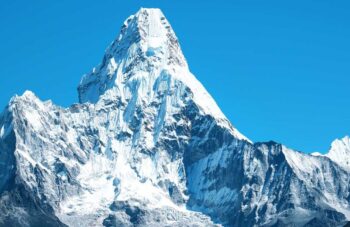
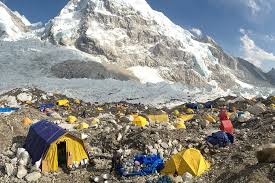
Leave a Reply